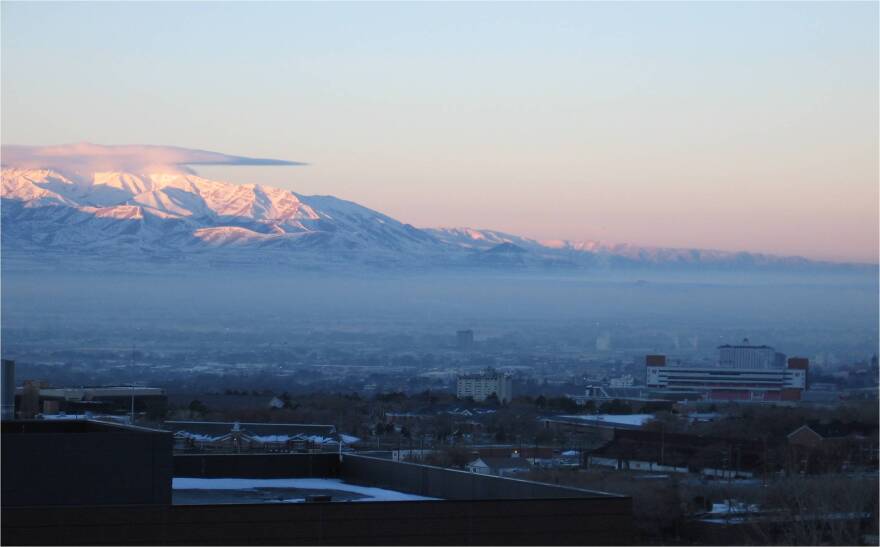It’s a sight Utahns are all too familiar with -- gray, smoggy air filled with dangerous particulate matter. Officials say sensitive groups like children and the elderly should be especially cautious during times of inversion. During red air days the air is unhealthy for everyone.
We know this. So why do we continue driving to work? Why do we idle our cars, contributing to the problem?
James Singer is teaching his sociology students to understand why it’s so hard for us to change. In order to help his students understand how difficult change can be, he has them give up sugar for a week.
“And what happens is, over 90 percent of students tend to fail this experiment. And this shows (like) there are these larger social things at play that really limit the choices that we can actually make. Right? So that’s the whole experiment idea.”
Singer says change can come when we have a personal experience leading us to it. But when it comes to air quality, for most people, that doesn’t happen.
“For some people it is when others get sick, but when it’s the majority they’re like ‘Meh, this isn’t really effecting me. It doesn’t really do anything, so uh, not going to do it.’ That’s the problem. That’s a big problem in how we do those things. But for the most part, we don’t want to change. It’s a lot easier for our minds not to have to think through those choices.”
For Jeff Ostermiller, thinking more about air pollution did come with a personal experience. His son got sick.
“He’s my first so you’re a little paranoid anyway. Called my wife and he was in the emergency room. I ran there. And they came in to check his oxygen levels and they were so low that they just got the readout, the nurse turned pale and ran out of the room. And that led to us having to make sure—especially on red air days, inversions—that he had to carry an inhaler, be really careful about outdoor activities and that sort of thing."
Although Ostermiller’s son has fewer problems now than he did years ago, he uses his experience to try and help others understand the negative effects of their idling.
“There have been times where I’ve seen people idling and I’ve actually told them the story about my son and said, 'you know look, a lot of people suffer from this and it’s a hard problem to solve,' but we’re never going to solve it if we don’t start.”
Singer says starting may have more to do with the culture of our community.
“We’re trying to juggle all these different kinds of choices of how to get around. We have cars. We have busses. We have carpooling. We have all these different things, but because there’s so much that goes along with carpooling—trying to figure out … someone else’s schedule, seeing what time the bus comes by, how often will it do that, can I take my kids on this ride, can I take my groceries on this ride—makes it a lot more difficult to the point where it just is like, ah, I can’t do this anymore. I can’t make this decision. And we revert back to the habit of driving the car.”
Although Singer says it can be a gloomy subject to talk about, there is still change that can occur.
“This is the main thing to understand with social change. To make changes, everyone has to participate, but no one can do it alone. So you say, ‘well, what can I really do?’ You have to join other people. You have to find other people who are doing similar types of things. Therein lies the power."







